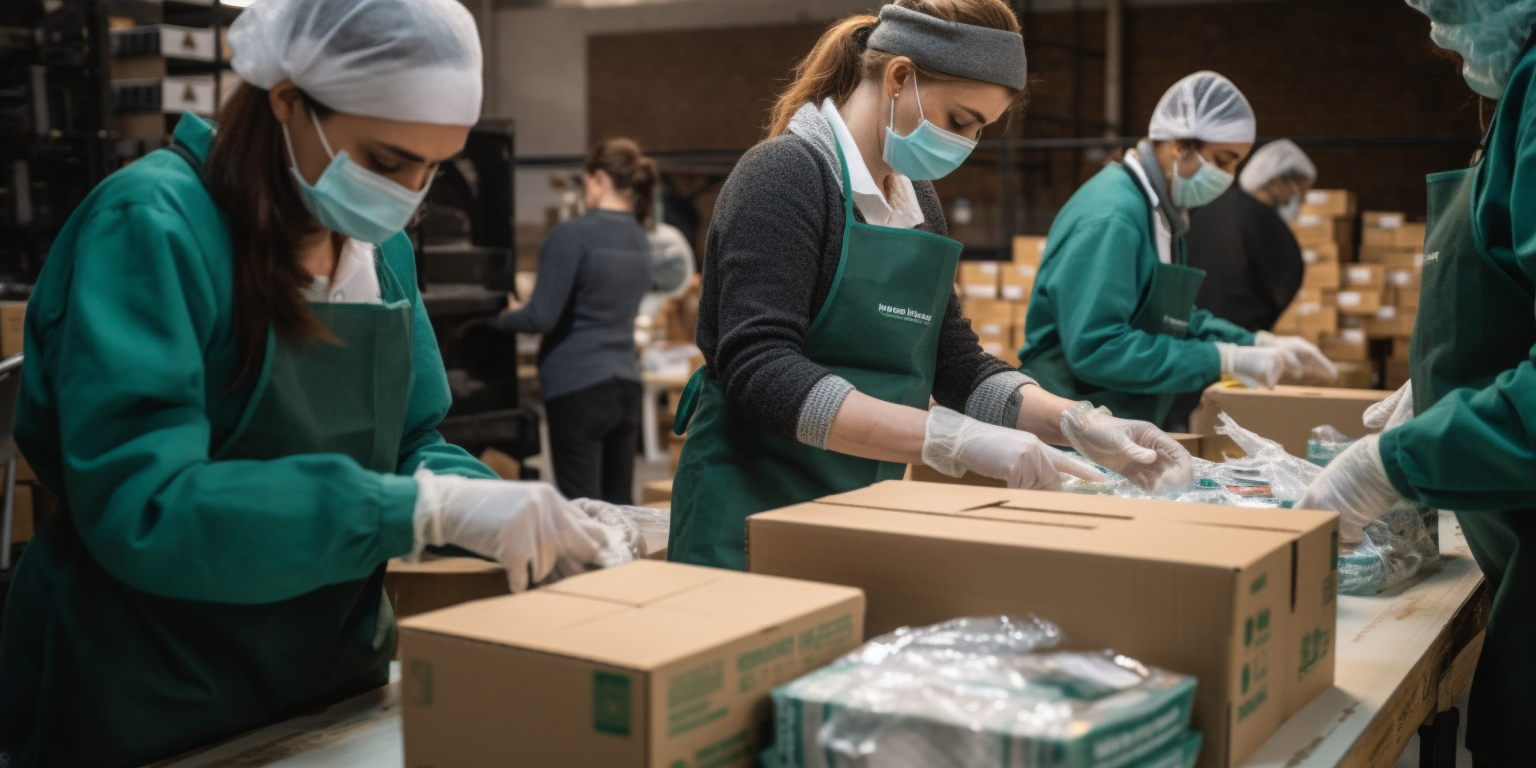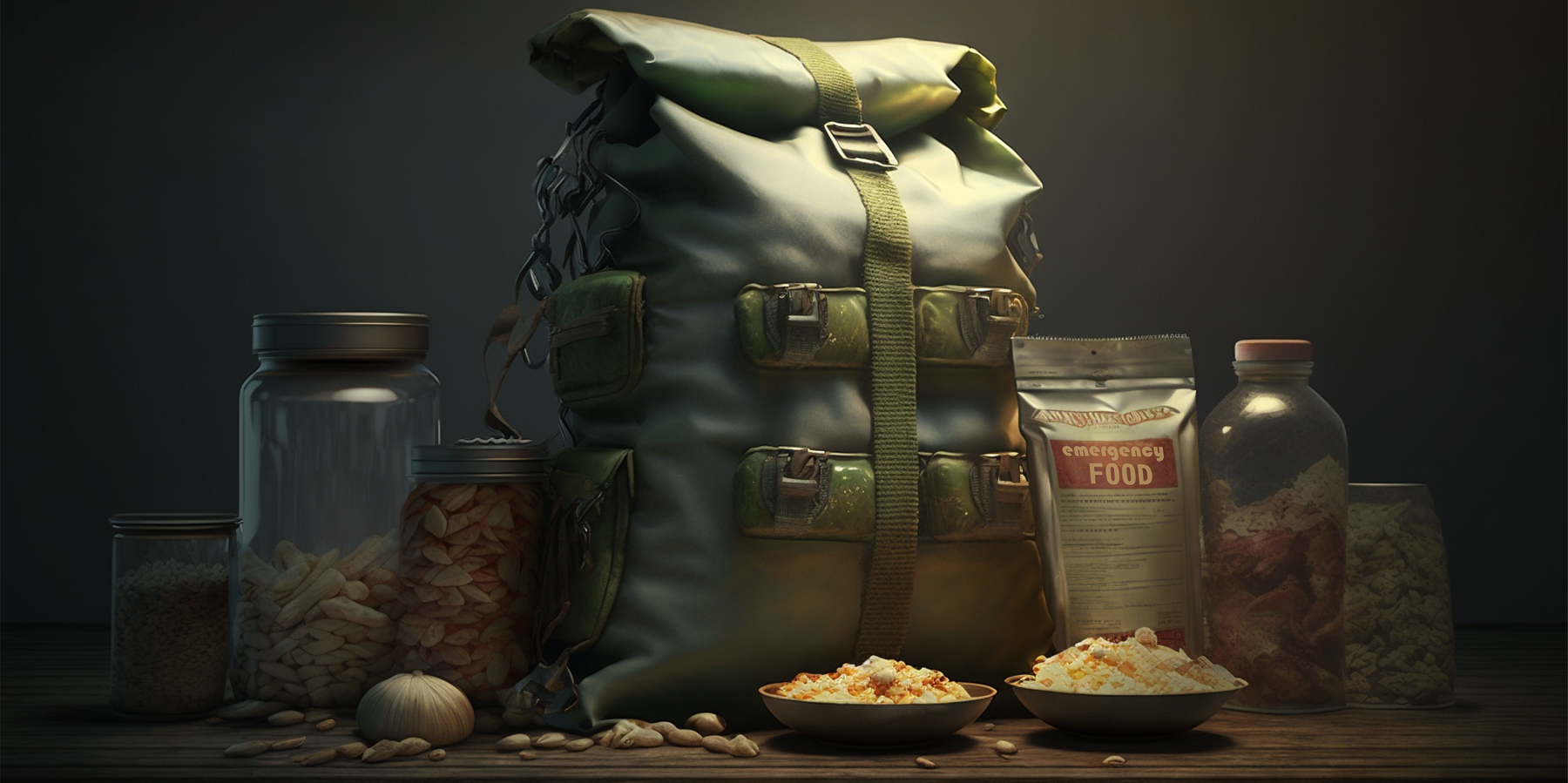
The Top 5 Nutrients You Need in Your Emergency Food Supply
The Top 5 Nutrients You Need in Your Emergency Food Supply
Introduction: The Importance of Nutrient-Dense Foods in Emergency Preparedness
No one wants to imagine a disaster or emergency situation, but it's essential to prepare for them. Whether it's a natural disaster, power outage, or unforeseen events like the COVID-19 pandemic, having a well-stocked emergency food supply is crucial. A study conducted by the University of Leeds found that in the event of a major catastrophe, the UK could experience food shortages of up to 50%, which would make having an emergency food supply even more crucial. However, it's not enough to simply stockpile non-perishable foods. It's crucial to ensure that your emergency food supply contains nutrient-dense foods that can sustain you and your family during a crisis.
Macronutrients: Protein, Carbohydrates, and Fats
Macronutrients are the three main types of nutrients that our bodies need to function correctly. They are protein, carbohydrates, and fats. When building your emergency food supply, it's crucial to ensure that you have a good balance of these three macronutrients.
Protein is vital for building and repairing tissues in the body. Good sources of protein include canned beans, canned tuna, peanut butter, and nuts.
Carbohydrates are the body's primary source of energy. Good sources of carbohydrates include canned fruits and vegetables, whole-grain crackers, and granola bars.
Fats are also essential for energy and maintaining healthy skin and hair. Good sources of fats include canned fish, nuts, and seeds.
Micronutrients: Vitamins and Minerals
Micronutrients are the essential vitamins and minerals that our bodies need to function correctly. While we only need them in small amounts, they play a vital role in our health. When building your emergency food supply, it's important to include foods that are rich in vitamins and minerals.
Top 5 Nutrients You Need in Your Emergency Food Supply
-
Vitamin C: Vitamin C is a powerful antioxidant that supports our immune system. Good sources of vitamin C include canned fruits, canned vegetables, and fruit juice.
-
Calcium: Calcium is essential for building strong bones and teeth. Good sources of calcium include canned fish, dairy products, and calcium-fortified orange juice.
-
Iron: Iron is essential for healthy blood and preventing anaemia. Good sources of iron include canned beans, canned meat, and fortified cereal.
-
Vitamin D: Vitamin D is crucial for maintaining healthy bones and teeth. Good sources of vitamin D include canned fish, egg yolks, and fortified milk.
-
Fibre: Fibre is crucial for maintaining a healthy digestive system. Good sources of fibre include whole-grain crackers, canned fruits and vegetables, and nuts.
Nutrient-Dense Foods to Include in Your Emergency Stockpile
When building your emergency food supply, it's essential to include a variety of nutrient-dense foods. Some examples of foods that are rich in the nutrients mentioned above include:
- Canned beans and lentils
- Canned fruits and vegetables
- Canned fish (such as salmon and sardines)
- Fortified cereal
- Peanut butter
- Nuts and seeds
- Whole-grain crackers and bread
Tips for Choosing and Storing Emergency Foods
When choosing and storing emergency foods, keep the following tips in mind:
- Choose foods that are non-perishable and have a long shelf life.
- Check expiration dates regularly and rotate your stock to ensure that you're always using the oldest foods first.
- Store your emergency food supply in a cool, dry place, away from direct sunlight and heat sources.
Conclusion: Building a Well-Balanced Emergency Food Supply
Building a well-balanced emergency food supply is essential for preparing for unexpected situations. By including a variety of nutrient-dense foods that are rich in protein, carbohydrates, fats, vitamins, and minerals, you can ensure that you and your family have the nutrition you need to stay healthy and energized during a crisis.
It's important to remember that an emergency food supply should be used only during a crisis, and not as a primary source of nutrition. In the event of an emergency, it's crucial to stay hydrated, so it's also important to stockpile clean water or water purification tablets.
In addition to building a well-balanced emergency food supply, it's also important to have a plan in place for how to access and use your food supply during an emergency. This may include having a manual can opener on hand, as well as a portable stove or camping stove for cooking food.
Overall, building a well-balanced emergency food supply requires some planning and preparation, but it's an essential step for ensuring the safety and well-being of yourself and your loved ones during a crisis. By following the tips and advice outlined in this article, you can create an emergency food supply that will provide you with the nutrients you need to stay healthy and strong during a challenging time.
Suggested Articles
The Role of Emergency Food in Pandemic Preparedness: Lessons from COVID-19
The COVID-19 pandemic has laid bare the vulnerabilities of our global food supply chains and has demonstrated the nee...
Emergency Food for Travellers: How to Pack and Prepare for Emergencies on the Road
Unexpected events can occur at any time, even during well-planned trips. Whether you're exploring the scenic coastlin...
The Best Food to Pack in a Bug-Out Bag
Introduction: Understanding the Importance of a Bug-Out Bag In an unpredictable world, being prepared for emergencies...




